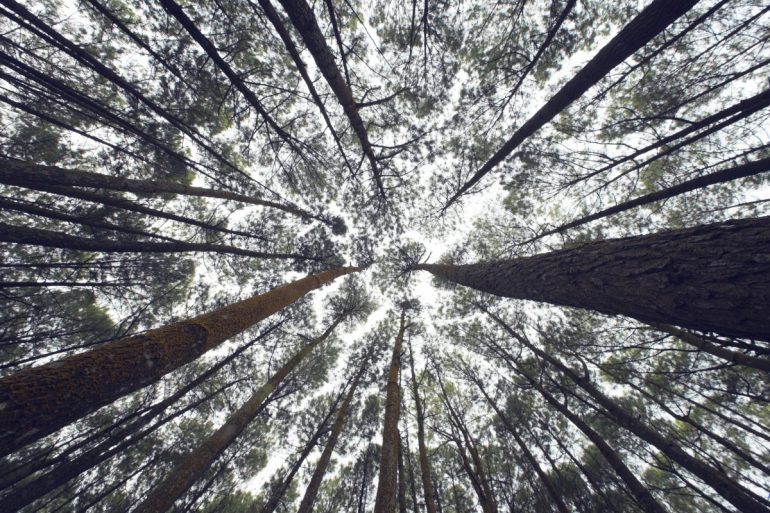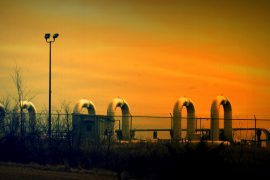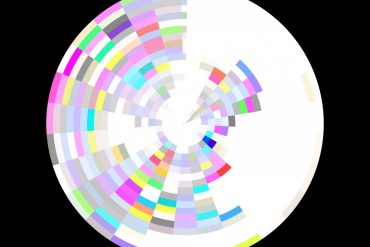With Pope Francis’ due to issue an environmentally focused papal encyclical this week, I was wondering:
Is environmentalism something new for Christians?
Many may be surprised that Christians would be working–even leading–on environmental issues, but history is rich with examples of those who care deeply for God and God’s creation.
Here are just five examples of the rich groundwork already laid for Pope Francis’ upcoming encyclical. (And since he’s Catholic, after all, we’ll pull from there for now)
1. Ecological from the start
Catholic teaching, and Christian teaching more broadly, has looked to the Creation narratives at the opening of the book of Genesis (Chapters 1-4) to understand God, Creation, and our role in their midst. The conviction is this: that the world was created beautiful and good by God, and that the intention for humans was one of sustainable stewardship. Since we’re taking a Catholic perspective for the moment, you can read more in the Catechism of the Catholic Church on The Creator.
2. It’s a matter of peace
[openquote]Christians, in particular, realize that their responsibility within creation and their duty towards nature and the Creator are an essential part of their faith.[closequote]
Pope John Paul II
Before Benedict XVI, Pope John Paul II made ecological consciousness a matter of global peace, with an address on the World Day of Peace (1 January 1990). John Paul identified the ecological crisis as fundamentally a moral problem–not merely one of economics, technology, or industry. He looks to the narratives of Genesis 1-3 in which God affirms the goodness of creation (Gen 1:31) and yet humanity chooses not to be stewards of God’s plan, but to set out on our own. And part of the goodness is “the aesthetic value of creation” which “cannot be overlooked.” God’s economy is not merely one of increasing efficiencies, but is filled with extravagant beauty.
3. Solar powered Vatican!?
While Pope Francis is getting headlines today for his advocacy for the environment, the previous Pope, Benedict XVI, was given the nickname the ‘Green Pope’. Some of his projects included a solar array on the Paul VI audience hall. Benedict also debuted a hybrid Popemobile and, like Pope Francis, saw the issues of the environment as moral ones, affecting “the least of these” (Matt 25:40) disproportionately.
[openquote]My dear friends, God’s creation is one and it is good. The concerns for nonviolence, sustainable development, justice and peace, and care for our environment are of vital importance for humanity.[closequote]
Pope Benedict XVI
4. Faith and science not in conflict
Long gone are the days of Galileo vs. the Church. The interplay of faith and reason has always been important to Catholic doctrine and practice (even, perhaps, when they got it wrong). There is a rich tradition–despite those who cry Galileo–of the harmony of science and spirituality, human endeavors and divine realities. These are not inherently at odds. (You can see this in the Catechism as well as the Pastoral Constitution on the Church in the Modern World which came out of the Second Vatican Council.) So should we be surprised that Pope Francis (and others), leaning on the best climate science of today, would affirm and enliven it with theology?
5. He’s a Francis after all
Considering the current Pope’s namesake, Saint Francis of Assisi, has long been regarded as the patron saint for all things ecological. From gardeners, to animal lovers, to the latest set of ecologically conscious Christians, this 12th century Catholic reformer, and founder of the Franciscan Order, is a model for environmentally conscious Christians. St. Francis composed the Canticle of the Sun which, which you might know better by its English adaptation: All Creatures of our God and King. On (or around) his feast day (October 4th) you can find many communities offering a service to bless the animals of a community.
And It Keeps Going
This list is not exhaustive, not even within the Catholic tradition. But it begins to show the foundation in the life of the church that stands behind the Pope’s upcoming proclamation. And it’s enough of a start for any of us to be not only a Catholic environmentalist, but a Christian environmentalist.
[question]What about you? Do you have examples (from your own faith community, or from history) to share? Tell us about it below![/question]



